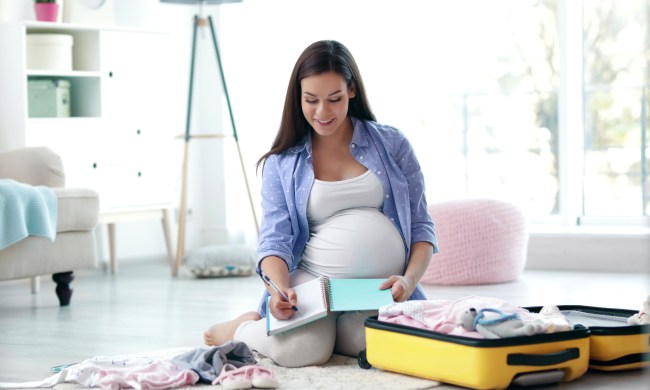Besides paying attention to what comprises your chosen stretch-mark cream, you might also want to be mindful of what it is missing. Opt for natural creams that don’t contain potentially irritating compounds, like mineral oil, or phthalates.
Most stretch-mark cream recipes call for ingredients that reinvigorate the skin, such as vitamin E, cocoa butter, and jojoba oil. These creams also tend to be moisturizing. Let’s take a look at a few of our favorites.
Mommy Knows Best Stretch Mark Cream for Pregnancy & Scar Removal
Best overall cream

Mommy Knows Best Stretch Mark Cream for Pregnancy & Scar Removal is made of ingredients that have been clinically proven to decrease the depth and noticeability of stretch marks. The product also helps the skin stay refreshed and soft.
Palmer’s Cocoa Butter for Stretch Marks & Pregnancy Skin Care
Best cocoa butter cream

The recipe for Palmer’s Cocoa Butter Formula Massage Cream for Stretch Marks & Pregnancy Skin Care is full of natural rejuvenating additives. It is a dermatologist-approved cream that can be easily applied to fade stretch marks and other blemishes.
Burt’s Bees Mama Bee Belly Butter
Best fragrance-free cream

Burt’s Bees Mama Bee Belly Butter is a natural stretch-mark cream that can relieve aching, stretched skin patches. The cream has vitamin E and shea butter to encourage the formation and maintenance of supple skin.
A quality stretch-mark cream can make all of the difference when it comes to helping stretch marks and other unsightly scars fade. Do your research to choose a cream with components that are most appropriate for your needs.


